
Michigan Panthers
First Game Played March 7, 1983
Last Game Played June 30, 1984
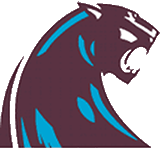
Historical Moments
The Michigan Panthers were one of the 12 charter franchises in the USFL, playing at the Pontiac Silverdome. A.
Alfred Taubman, one of the nation's leading real estate developers, headed the ownership group that included Judge Peter B. Spivak and Max M.
Fisher. The Panthers were coached by Jim Stanley who had experience on the college level and in the CFL.
The Panthers landed University of Michigan star receiver Anthony Carter, the league's territorial draft. The Panthers began the season on the road against the Birmingham Stallions in the USFL's first Monday Night game, which was the first professional football game on ESPN.
In the game's final seconds Novo Bojovic kicked a 48-yard field goal to win the game 9-7. However, the Panthers stumbled over the next month losing their next four games.
Much of Michigan's struggles were due to a porous offensive line, this led the Panthers to signing NFL experienced lineman including Ray Pinney and Tyrone McGriff of the Pittsburgh Steelers along with Thom Dornbrook of the New York Giants. The additions helped the Panthers get back on track as they won six straight games.
Despite a bump in the road that saw them lose two of three games, the Panthers won 11 of their last 13 games, and finished the season atop the Central Division with a record of 12-6. Bobby Hebert was the USFL's top quarterback in the league's first season, passing for 3,568 yards with 27 touchdowns.
Much of Hebert's passing numbers were to Anthony Carter who had a team best 1,181 yards with nine touchdowns. The Panthers running game was headed by Ken Lacy who ran for 1,180 yards with six touchdowns while John Williams had 624 yards and powered his way with 12 touchdowns.
The Panthers defense was led by John Corker who had a league best 28 sacks and was named Defensive Player of the Year. 1983 USFL Playoffs: The Michigan Panthers would host the Western Division Champion Oakland Invaders in the USFL Semifinals with a league record 60,237 fans at the Pontiac Silverdome.
After the Invaders held a 7-0 lead at the half, the Panthers scored 17 unanswered points in the second quarter to take the lead at the half. The Invaders got a break early in the third quarter, turning a Bobby Hebert interception into a touchdown to cut the lead to a field goal.
However, it would be one of the only mistakes Hebert would make as he had a big game passing for 295 yards as the Panthers won the game 37-21 to advance to the USFL Championship Game. As the game came to a close, fans began pouring on to the field and tore down the goalposts, as the officials ruled the game was complete with 25 seconds left.
1983 USFL Championship Game: The Michigan Panthers would face the Philadelphia Stars in the first USFL Championship Game at Denver's Mile High Stadium. A majority of the 46,535 fans in attendance were rooting for the Panthers who again got a big game from Bobby Hebert who had a pair of touchdown passes to Derek Holloway to help Michigan build a 17-3 lead in the third quarter.
The Stars though crawled back and got within a field goal with 8:49 left on a Chuck Fusina touchdown followed by a two-point conversion. However, Bobby Hebert who would be named the game's MVP answered back, connecting with Anthony Carter for a 49-yard touchdown strike to all but seal the game.
Hebert finished the game with 314 yards with three touchdown passes. The Stars would score in the game's final seconds as Panthers fans again rushed the field to celebrate the Panthers 24-22 win to capture the USFL Championship.
Michigan Panthers Best
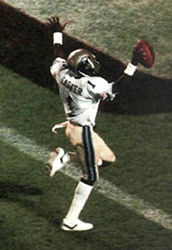
Anthony Carter
1983-1984
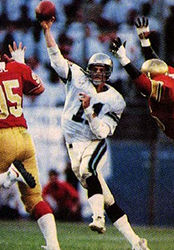
Bobby Hebert
1983-1984
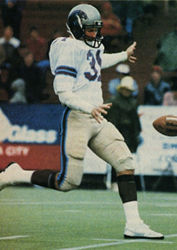
David Greenwood
1983-1984
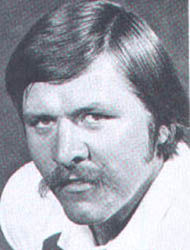
David Tipton
1983
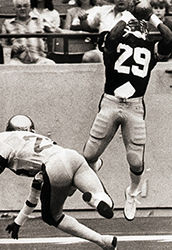
Derek Holloway
1983-1984
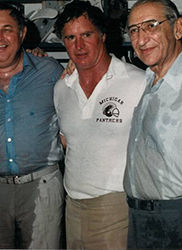
Jim Stanley
Coach 1983-1984
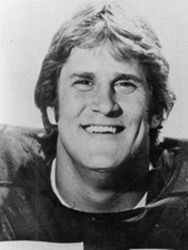
John Banaszak
1983-1984
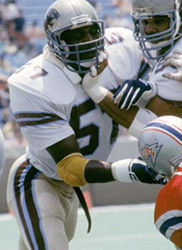
John Corker
1983-1984
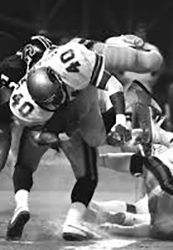
John Williams
1983-1984
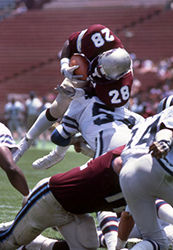
Ken Lacy
1983-1984
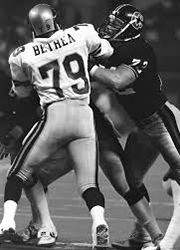
Larry Bethea
1984
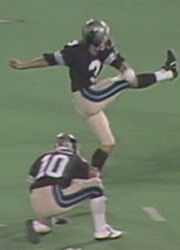
Novo Bojovic
1983-1984
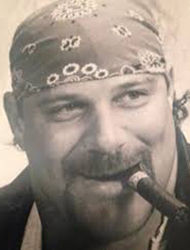
Ray Bentley
1983-1984
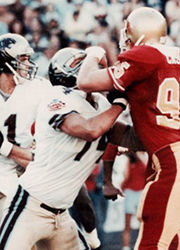
Ray Pinney
1983-1984
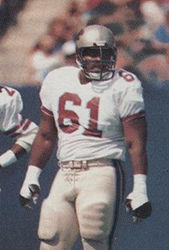
Tyrone McGriff
1983-1984
Michigan Panthers Stadiums
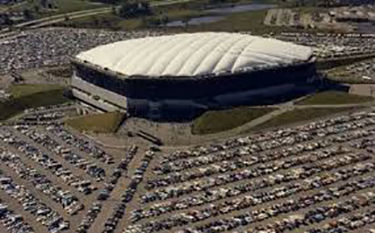
1983-1984
Championship Teams
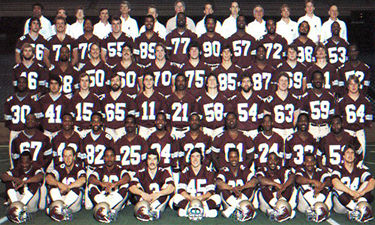
1983 USFL Champions
Michigan Panthers